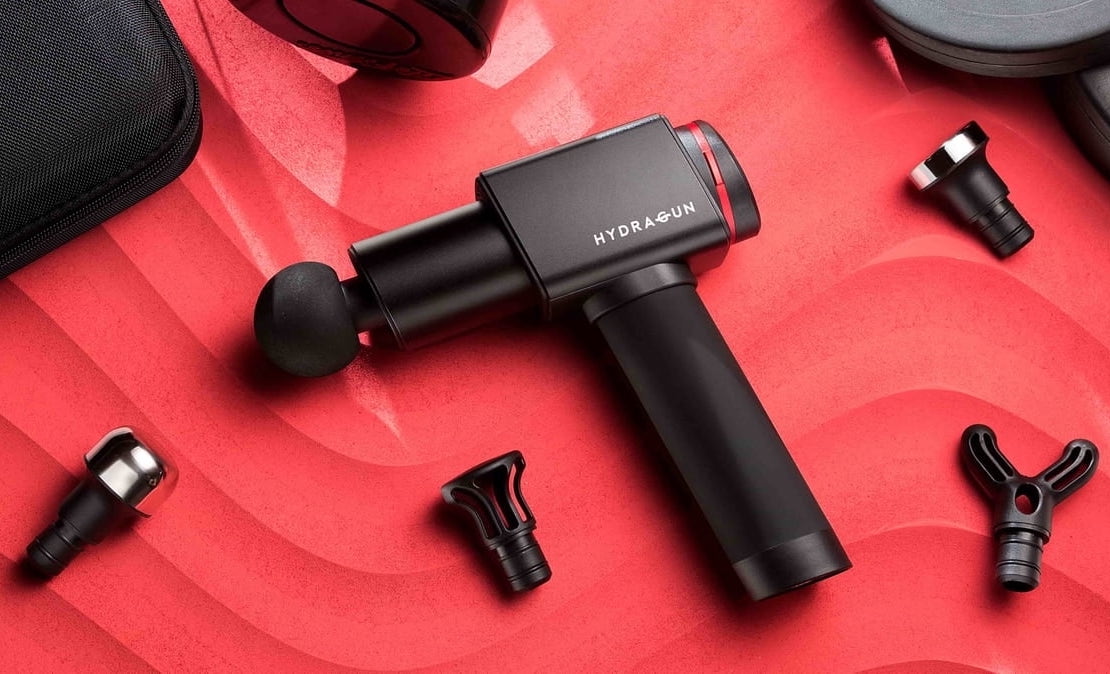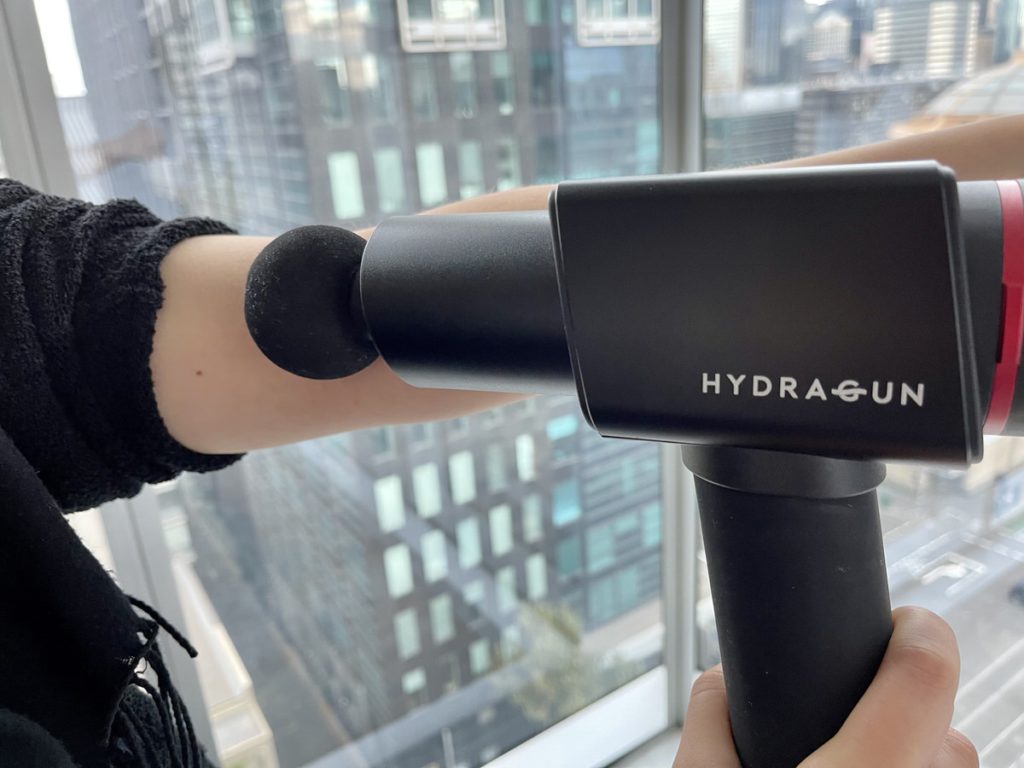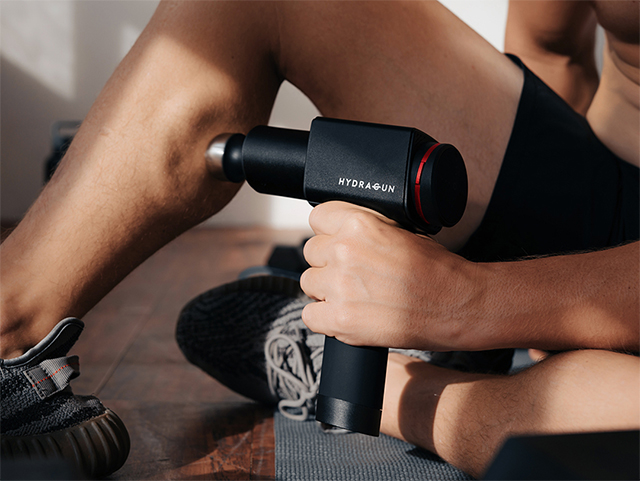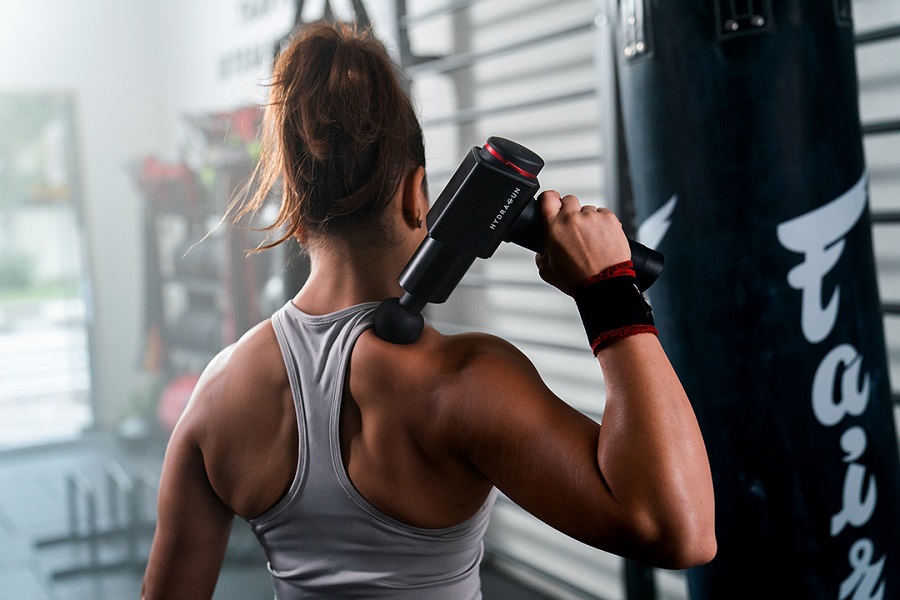Massage guns have become hugely popular recently. They’re devices that effectively punch your delicate flesh thousands of times a minute to massage your aching muscles. I’ve been testing the Hydragun ($399) for the last month, and it’s really opened my eyes to the more “affordable” end of this trend.
What’s in the box?
A charger, six attachments (which range from a fairly firm ball to a hard, pointy plastic rounded arrowhead), a travel case, and, of course, the Hydragun itself.
Performance
The Hydragun is a pretty decent massage gun. It’s certainly punchy, but it’s a lot quieter, so you can punch out your pains in front of the TV without irritating your family.
The handle is fine enough. It’s not on the same level as the Theragun Elite’s ($649) handy triangle, which makes it better to reach weird angles. The more traditional handle on the Hydragun means that there are some parts of my back that I needed my wife’s help to reach, whereas I’ve been able to manoeuvre the Theragun to make it work more easily.
I mostly use massage guns on my lower back, elbows, sore muscles, and tight tendons as needed. The Hydragun is fantastic on sore thighs and calves after a long bike ride, and biceps after an ill-advised weights session. But I find that the percussive part can “lock up” a bit and start “bouncing” out of time, which can be extremely painful on my back, elbows and tendons. The Theragun also occasionally seems to do the same, but less frequently, for shorter periods of time, and with the softer ball head it doesn’t hurt as much.
The on button at the back is surrounded by 12 lights which show the battery power remaining and strength of the massage, and you just keep pressing the on button to get to the desired setting, so it’s nice and easy. For most things I found that the first three levels were more than enough, and the top level is intense. Level 6 is the most powerful setting I’ve experienced on a massage gun, which isn’t for everyone, but will definitely be great for some people.
Do you need it?
Whether the Hydragun is the right choice for you depends on a few factors. Mostly, what are you wanting to massage and why?
Some massage guns make claims about activating muscle groups before a workout to help you get fitter faster, or how they have the magical ability to help you heal faster after a workout. There’s no evidence that massage guns can do any of those things. But what they can do is massage your tight muscles and potentially make them hurt a bit less, and, frankly, that’s enough for me. I wish the marketing around these devices was more “this will give you a firm massage that will make you cry at the time but you’ll feel relief in your aching muscles for at least half an hour” instead of “this will take you from 0-Hemsworth”, but I guess that doesn’t sell as many $400+ devices.
I find the relief of massaging out an exercise-fatigued muscle lasts a solid couple of hours before it needs more treatment, and that’s great. On my lower back that I threw out because I coughed too hard the relief is valuable, but only lasts 20 minutes with diminishing returns on each treatment. Treating the soft bit on the top of my elbow stops my hand seizing up after drumming, which is amazing and seems to last a good half hour.
It doesn’t come close to a massage by a person, or seeing an actual physio, but for post-workout muscle soreness, and just trying to get through the day with tight muscles, the Hydragun can be really helpful.
Verdict
For me, I would recommend springing the extra $250 for the Theragun Elite if I was trying to give temporary relief for injuries, just because of the weird bouncing thing and how painful that can be.
But if you’re just wanting to get through the post-workout muscle soreness on large, uninjured muscle groups, then you may as well save the cash and get a Hydragun, because it’ll do the job pretty well.



